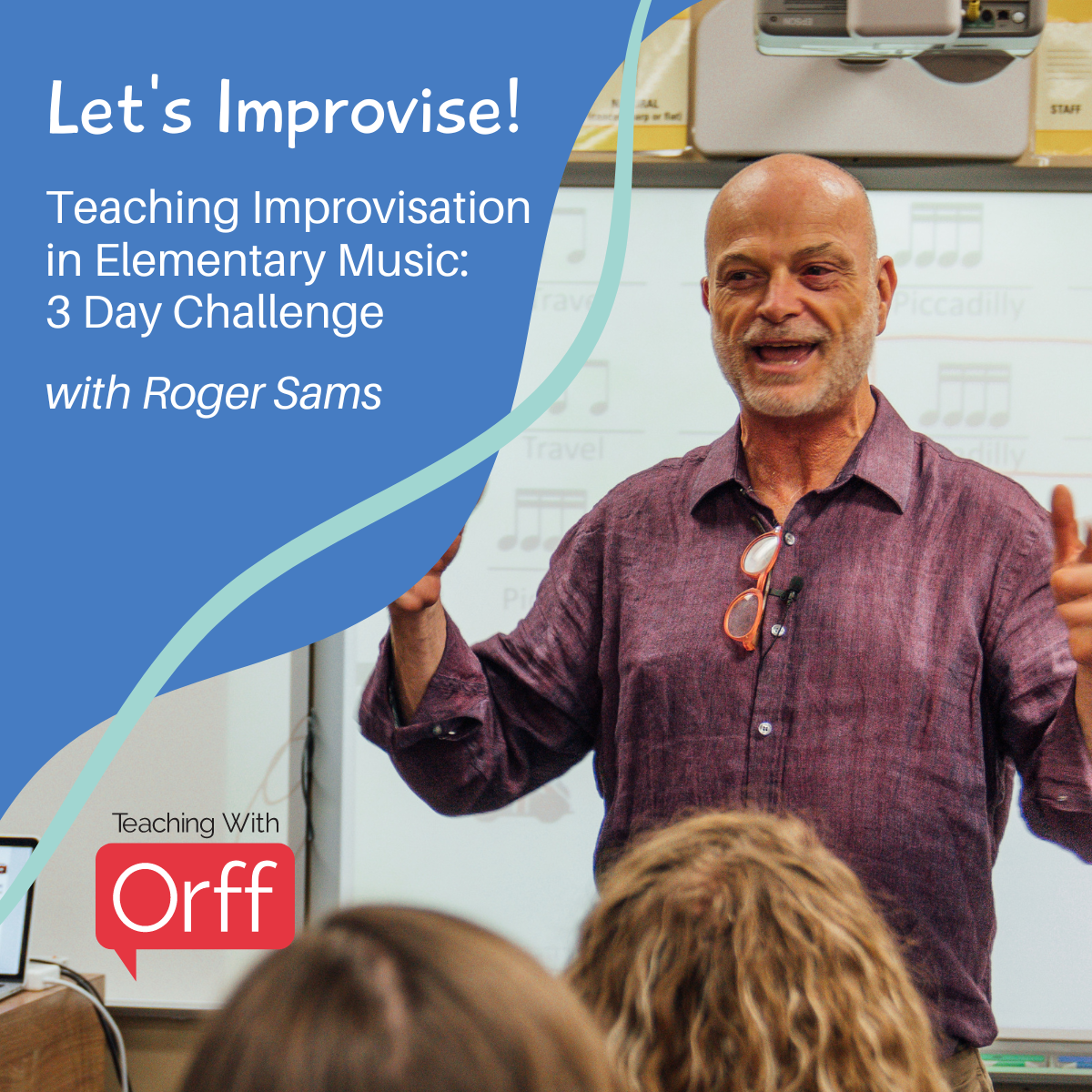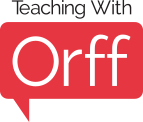
A Day in the Life of Orff Certification: Day 10
Orff Level I – Day 10
Friday marked the last day of my Orff Level I certification and the day was bittersweet; it was wonderful to look back at all we learned in our two weeks together but sad knowing we wouldn’t see each other and keep learning on Monday.
The course culminated in a performance where we were able to demonstrate our ability to combine singing, playing, and dancing to make our own creations. While this performance was made by us students, it would not have been possible without our movement instructor, Kate Williamson. She allowed us the freedom to create how we wanted, but was able to tweak our performances to improve transitions and more clearly express our intentions. I loved watching her teach over the past two weeks – she gives students guidance but encourages free-thinkers, even when the students want to be told what to do. I believe in acting this way she showed us a very beautiful example of an Orff teacher – twirly skirts and all!
Back to the last day of Orff Level I – we had a “Kumbaya Time” after lunch where people were able to discuss what they learned about: 1) music, 2) learning/teaching, and 3) themselves. I’ll first delve briefly into my answers:
1) I learned several things about music this week, but the one of the things that stuck out was how music can be created horizontally rather than vertically. Rather than finding a melody and putting chords to go with the notes, you can compose ostinati that are interesting on their own and happen to line up well with the melody. I love the way the music we worked on these past two weeks was created by layering on different ideas – it offers so much room for individualization depending on your classroom and students’ needs.
2) Learning about the process of teaching music in the Orff style was the most important thing I took away from this class. I feel like my lessons will be so much more engaging in the future because each step in the process is interesting – no more “I sing, then you sing”! Knowing how to spend more time on a quality song and pull many things out of it is a huge reward for me.
3) I found out these past two weeks that I still have things to work on as a musician. I know that I’m not an awesome teacher yet – I’ve only been doing it two years – but I thought I was done having to learn how to sing or play an instrument. Now though, it seems that I need some work on my vocal and recorder improvisational skills and solfa syllables. It’s nice to know that I still have room to grow in this way and that when my students are struggling, I will be able to easily relate and empathize.
Before getting to my last edition of Roger’s Nuggets of Wisdom, I want to share a couple of the wonderful things some of my fellow students shared (paraphrased):
Two weeks ago I didn’t have a problem with what I was teaching my students – So many of the teachers in this class were discussing how much their plans have changed for the coming year based on what they have learned in Level I. It’s not okay anymore to just give worksheets or sing songs without a purpose – we know what our students can achieve if we just work hard to help them get there!
I’m done being a teacher who presses play – This goes right along with what I said above – it’s not good enough anymore to have them always sing with a CD when we know how to layer parts so that they are creating all parts of the music.
It’s not competitive – The Level I class was never about competition – we were reaching for our personal bests and helping each other become the best teachers we can be. In the secondary music world there is a lot of competition between students and schools to earn the best seat, the best scores, the best solos…in elementary music we are here to support each other on the journey and that is the environment our students should feel like they are in as well.
It’s not our job to push music into our students, it is our job to pull it out of them – What beautiful words! I love this sentiment that we are here to facilitate student discovery of music, not tell them how to do it. We can give students the skills they need and advice, but they must create for themselves to truly appreciate what they are learning.
Roger’s Nuggets of Wisdom
(those small phrases that seem to pretty much sum up Orff Schulwerk)
“How many teachers don’t offer students the bridge?” – This quote was used in reference to giving students a challenge in music class. So frequently teachers ask students to do difficult things without adequately showing them how to get there and it is our job to offer that support so they can succeed, thereby building a love for music and a love for themselves.
“Today is a beginning, not an ending” – Even though my class is over and I’m now back to the rest and relaxation of summer, it is not the end of my Orff journey. I still need to figure out how to implement what I’ve learned and get my students in on this new way of learning music. I’ve already started to rethink my plan for next year and am trying to figure out how I can begin to morph myself into an Orff teacher. Over the course of the year I am sure I will learn a lot more about myself and about Orff, so I won’t think of it as a “goodbye” but as a “see you soon”.
See all posts by Erin Clevenger
Sign up for latest Orff Tips, Lesson Plans and Advocacy Tools

Empower your students to create their own music in this free 3-day challenge with Roger Sams. (Lessons delivered via email)

Learn about the legendary factory that started it all and why so many teachers like you love our instruments.
